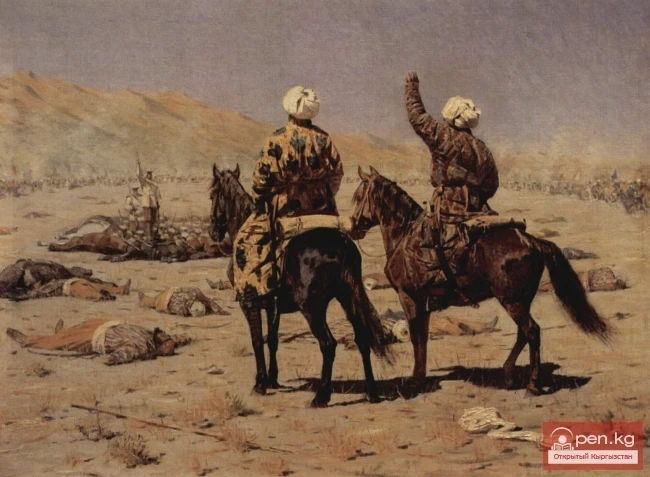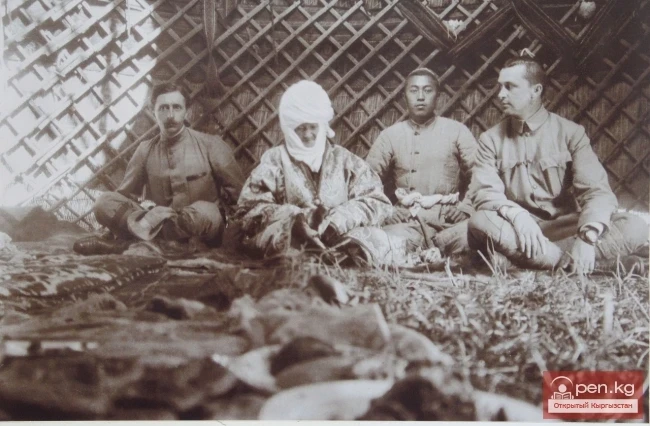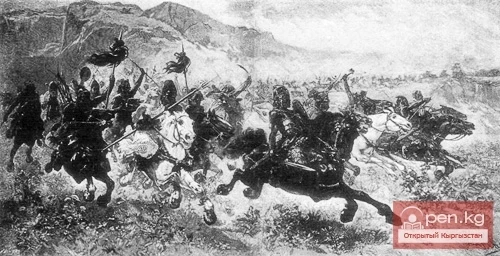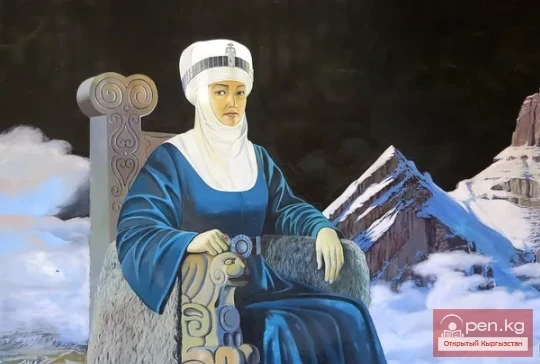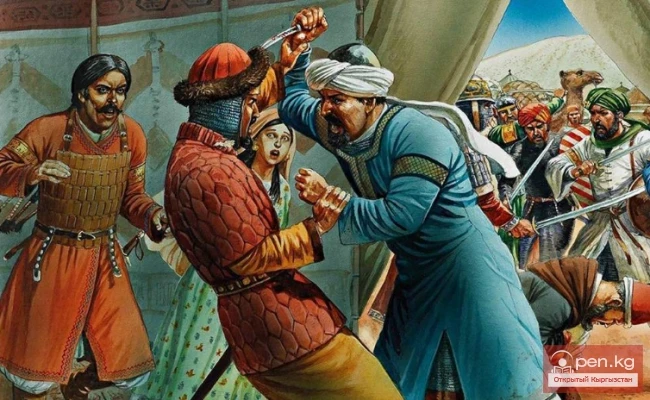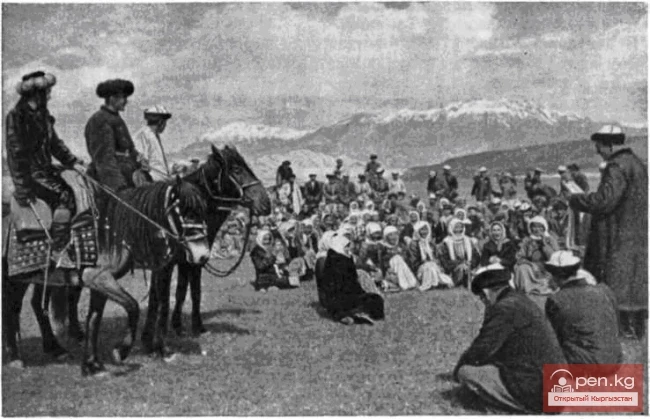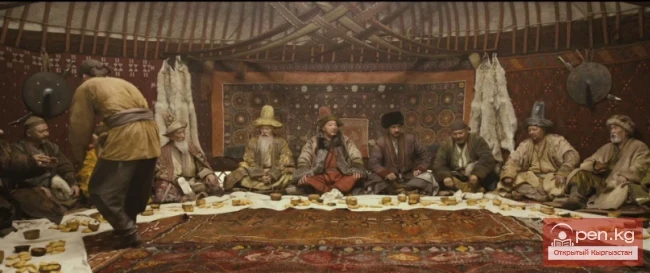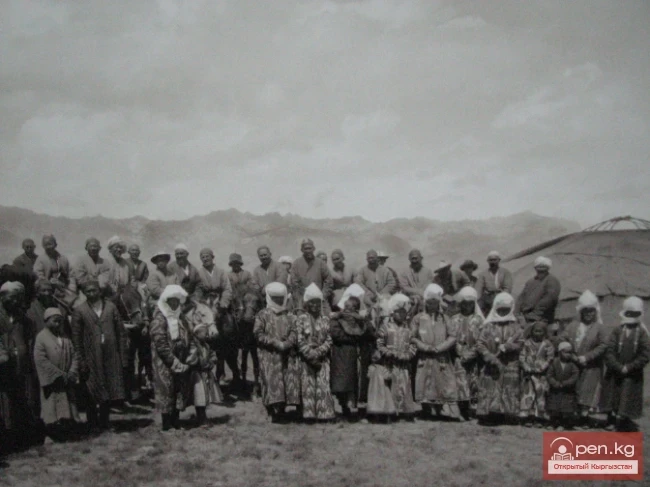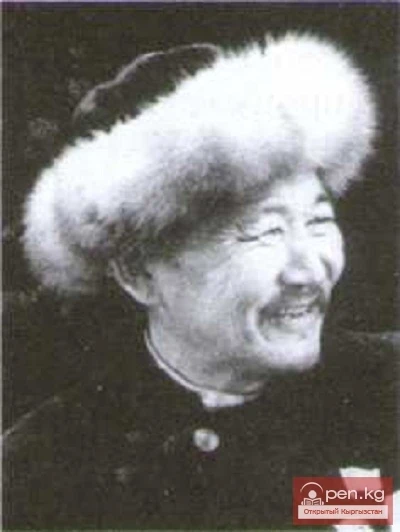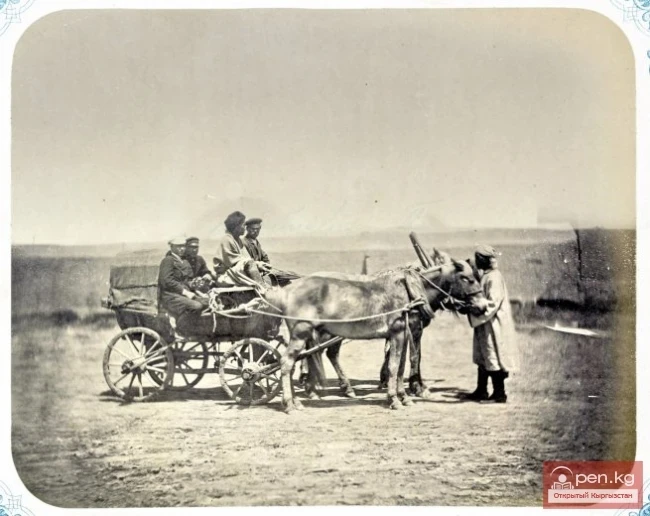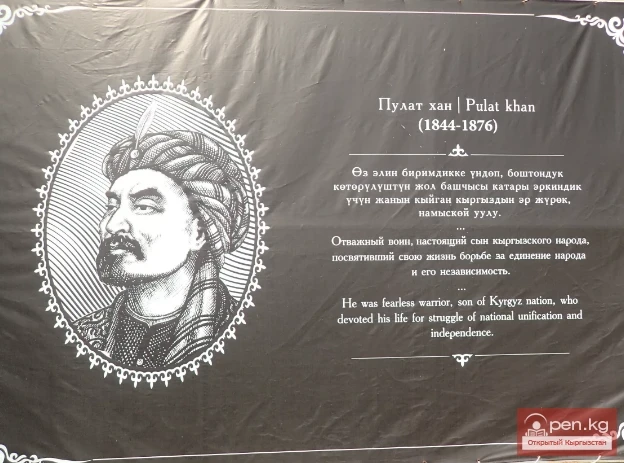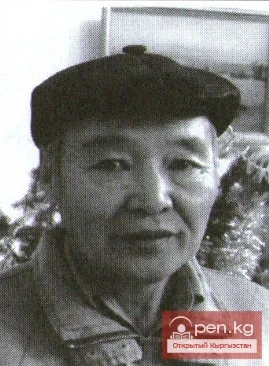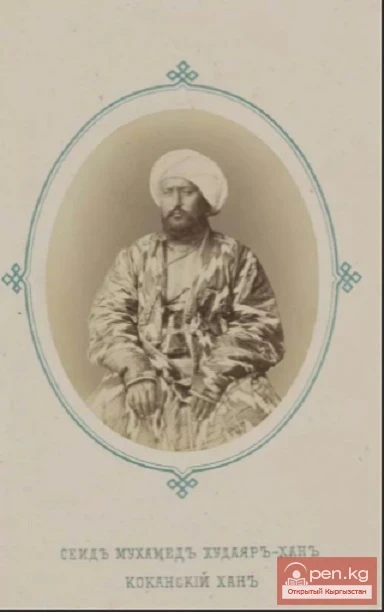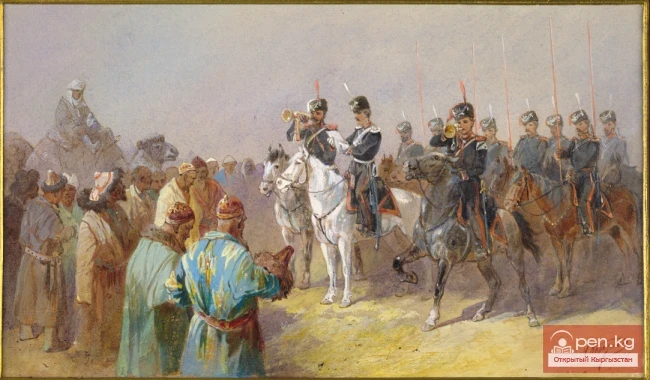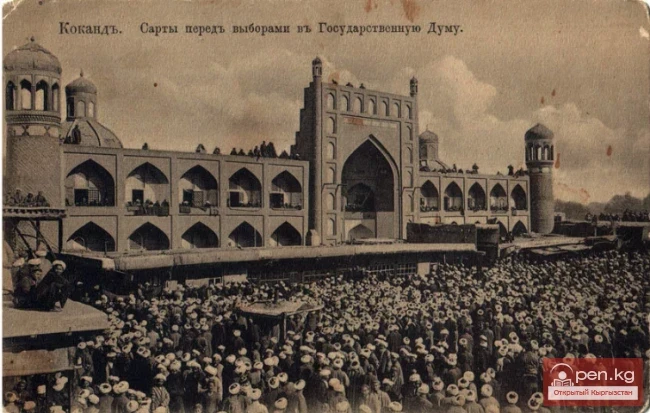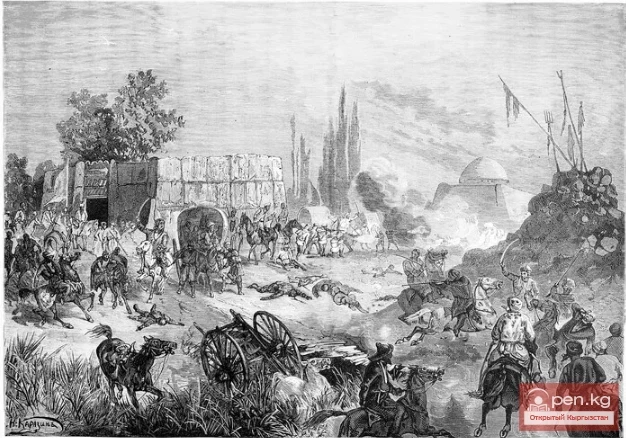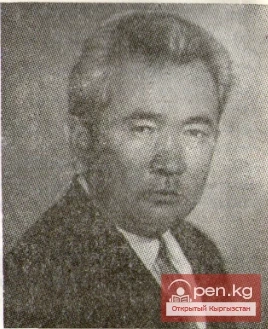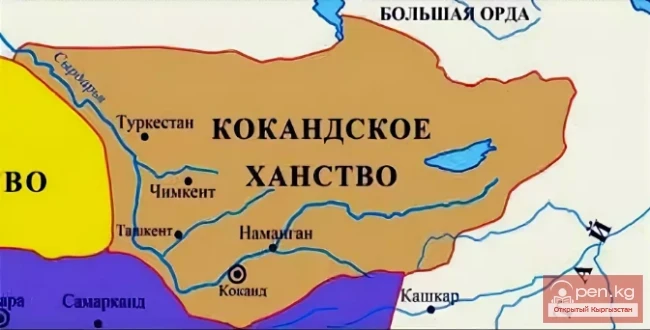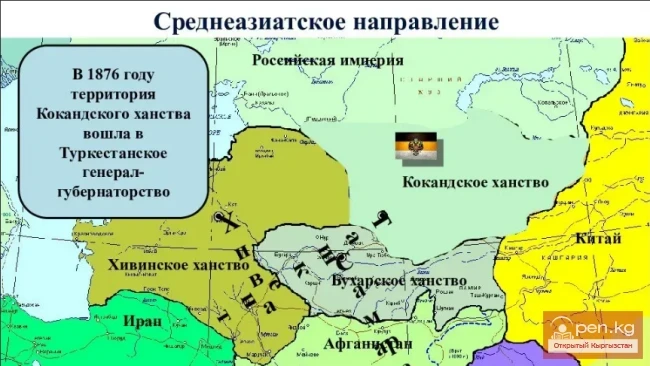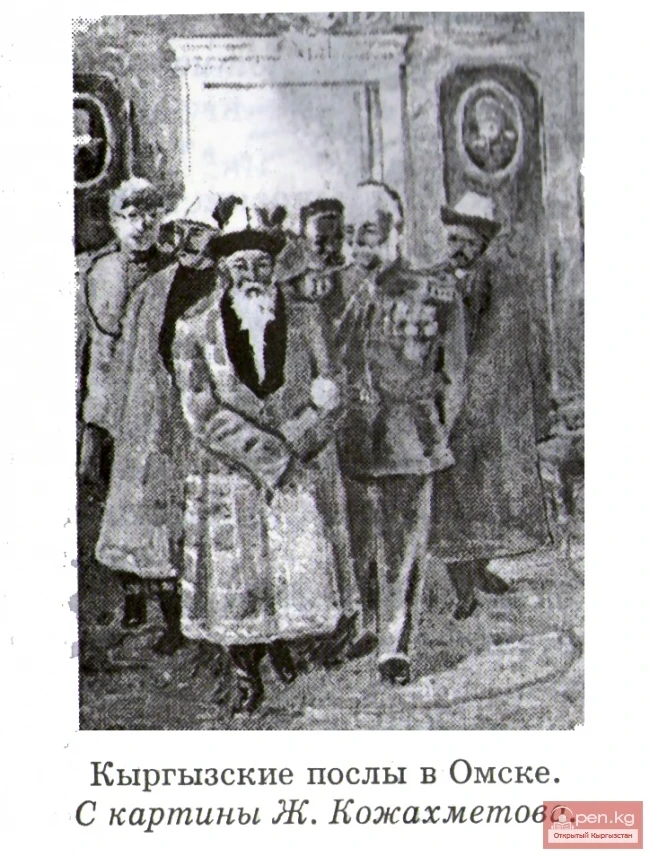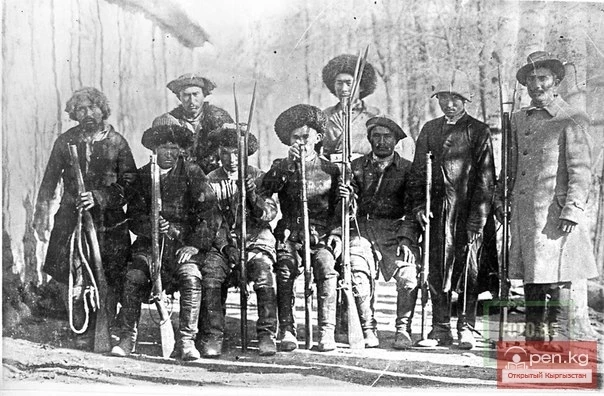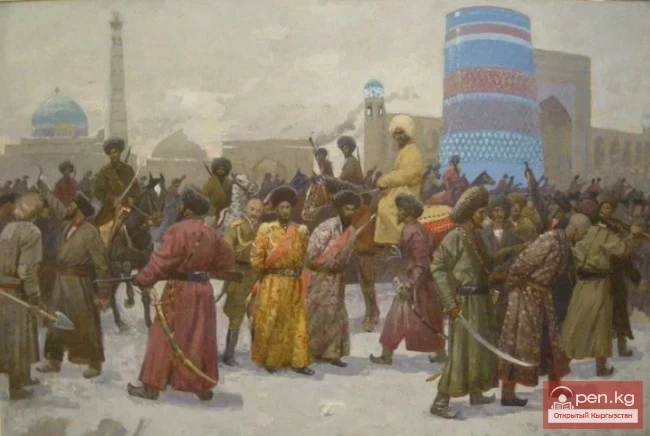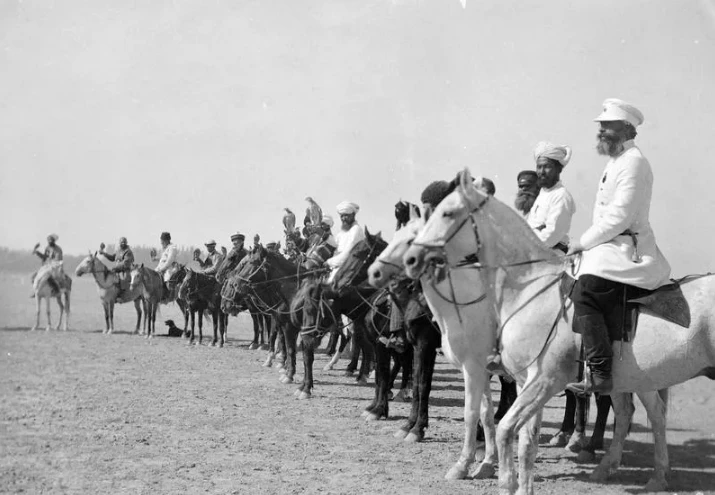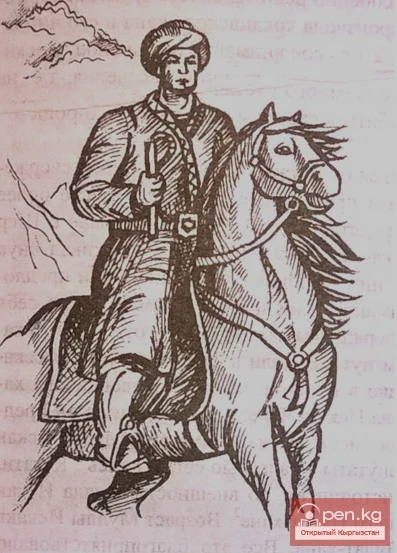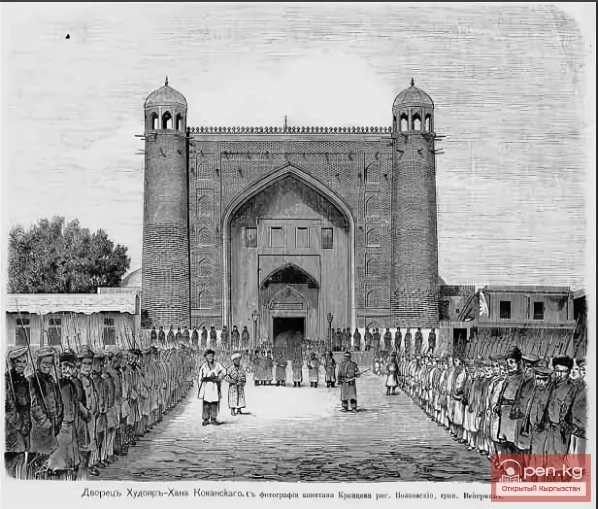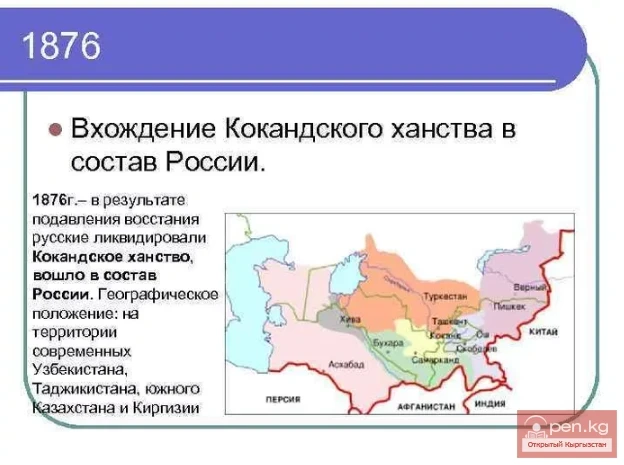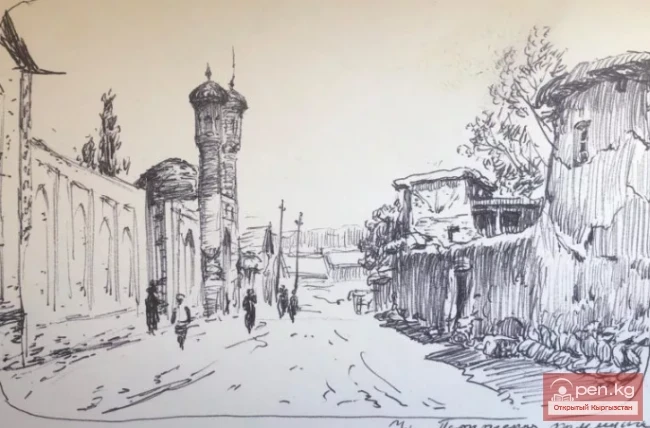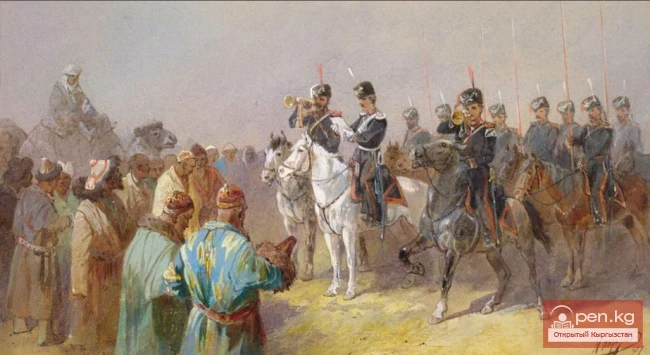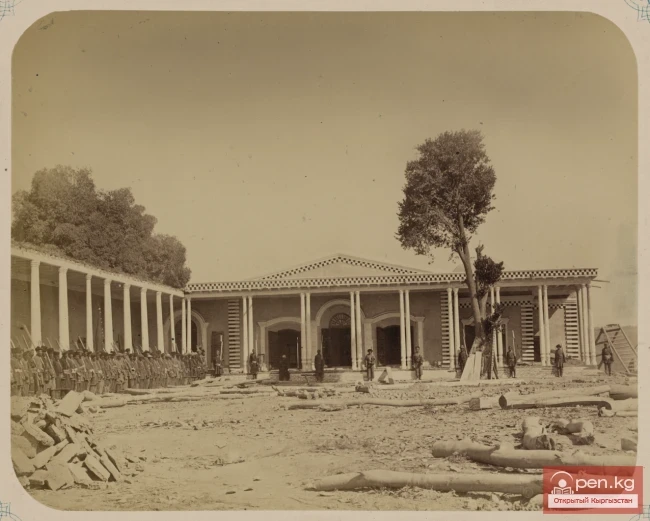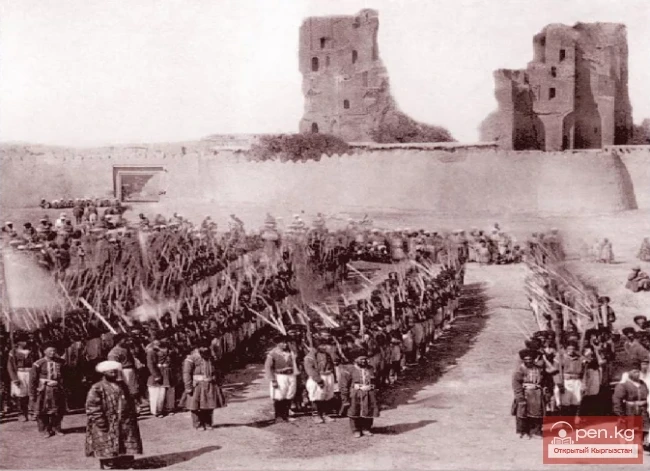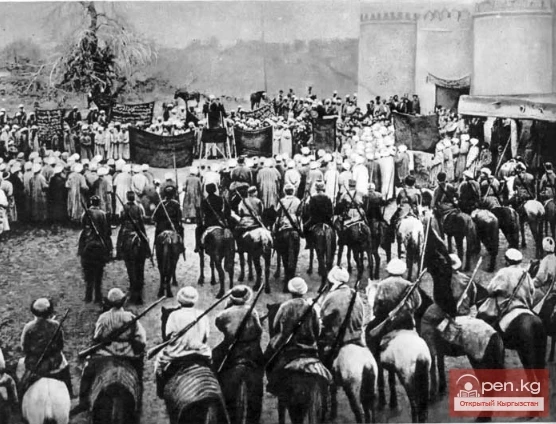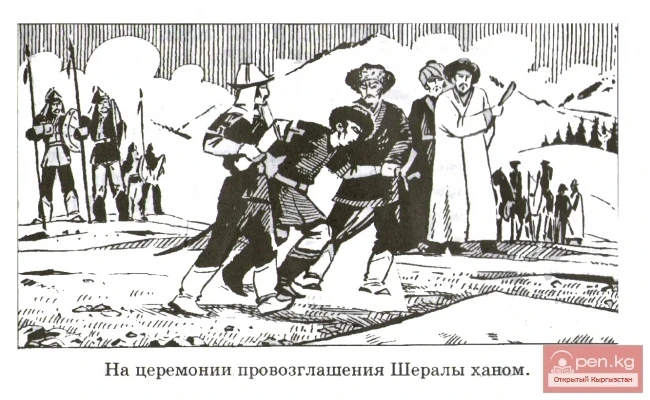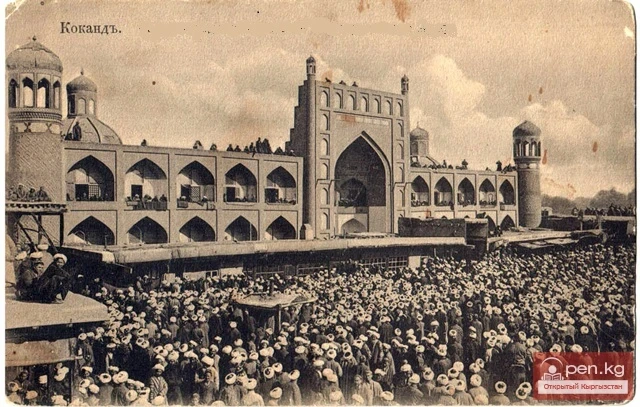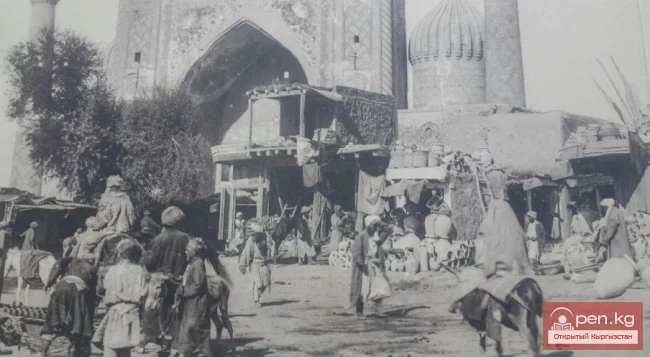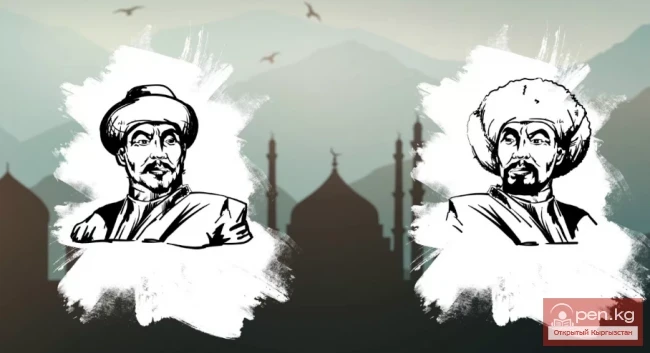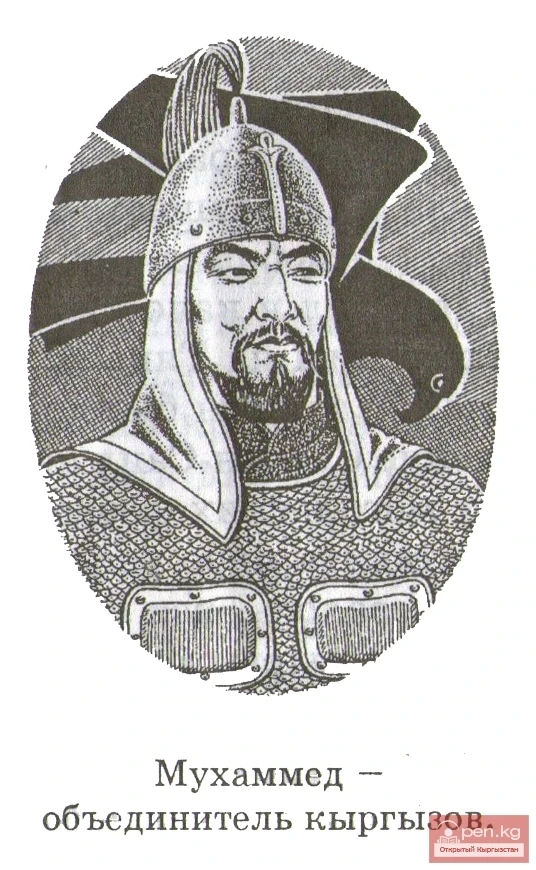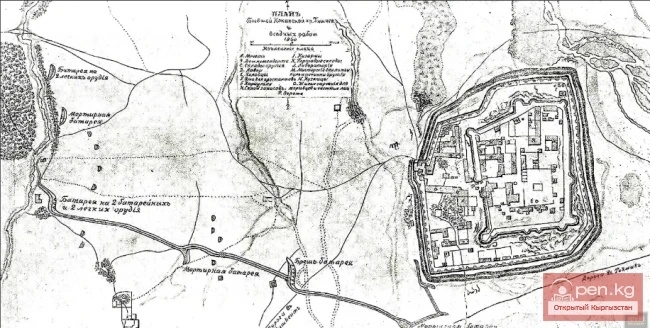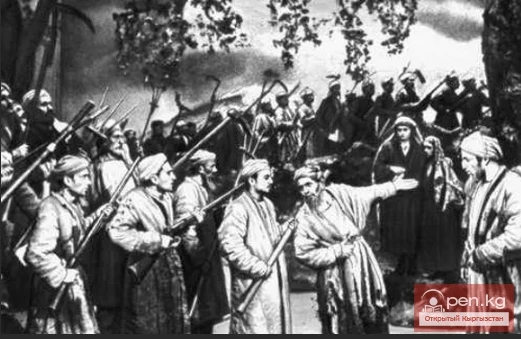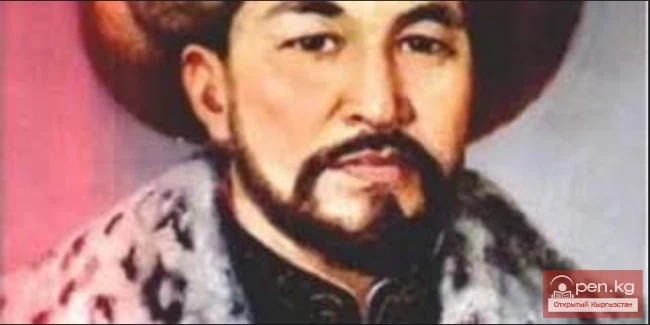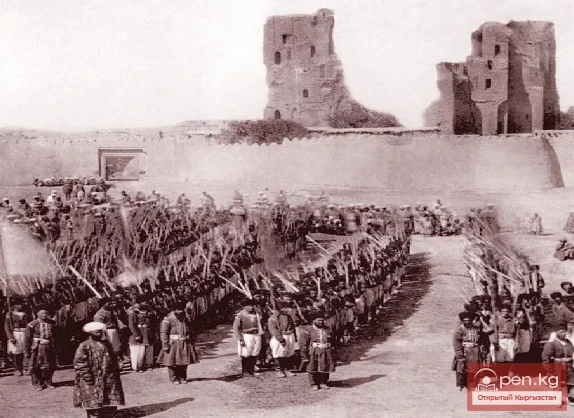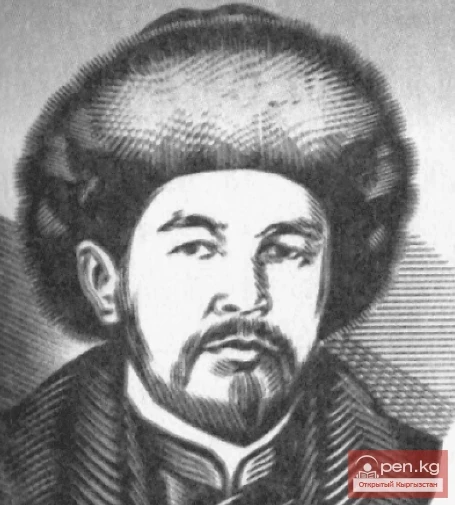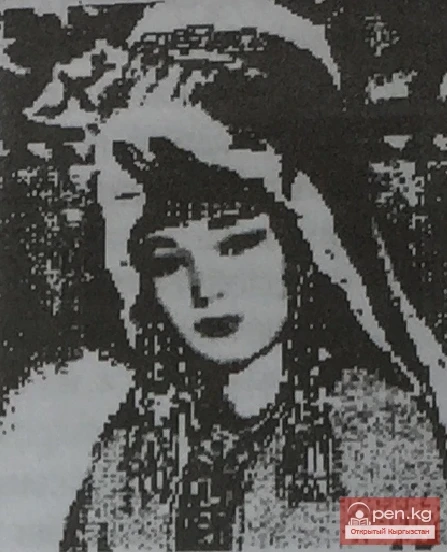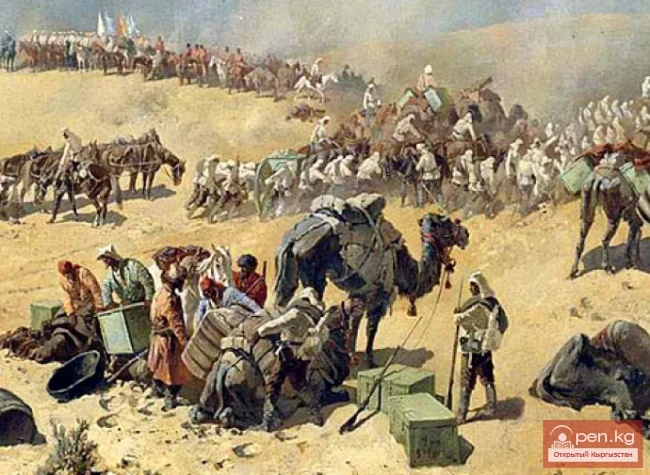In the mid-19th century, the population of Southern Kyrgyzstan was still under the yoke of the Kokand Khanate. However, the political situation and the status of the khanate were no longer as stable as before. Internal contradictions and ongoing palace coups, on the one hand, exacerbated the already difficult situation in the khanate, and on the other hand, facilitated Russia's task of conquering the Fergana Valley and Southern Kyrgyzstan as a whole.
Alimkul Atalyk. The Kyrgyz people and their prominent leaders still played a significant role in the political and state life of the Kokand Khanate during this period.
Among them, Alimkul Asan-biy uulu stood out particularly. He received his education at a madrasa. For his bravery shown in elevating Mallya-khan to the Kokand throne in 1858, Alimkul was awarded a high military-administrative position — eshik-aga. Later, in 1862, when the khan became the 12-year-old Sultan-Seyid, Alimkul became the closest advisor to the young khan — atalyk. This meant that power in Kokand was essentially concentrated in the hands of Alimkul Atalyk. This period coincided with the Russian military's campaign of conquest in Central Asia.
Alimkul, leading the Kokand army, dealt a heavy blow to the tsarist troops near Chimkent. In 1865, during the defense of Tashkent against the Russians, Alimkul Atalyk demonstrated unprecedented courage. With his characteristic decisiveness, he led an attack with poorly armed and few Kokand warriors and forced the strong enemy to retreat. In the heat of battle, one of the bodyguards, who turned out to be a traitor, shot him in the back. The wound was fatal. Alimkul Atalyk, who heroically fell in battle for his country, was only 36 years old. Losing their leader, the Kokand warriors retreated. The Russians occupied Tashkent and formed the Turkestan region, subordinate to the Russian Empire.
The Uprising of Pulat-khan. In the 19th century, the Kyrgyz repeatedly rose up against the oppression of the Kokand Khanate as well as against the conquering policies of Russian tsarism. The struggle initiated by the Kyrgyz was always supported by the neighboring Uzbeks and Tajiks.
The uprising of 1873-1876 is known in history by the names “People's Movement,” “Kokand Uprising,” “Uprising of Pulat-khan.” It was led by a simple Kyrgyz jigit named Iskhak Hasan uulu. In his childhood, Iskhak received education at a madrasa. For some time he was a religious servant, then moved to Andijan, where he became a jigit under the well-known Abdymomun Atalyk in Kokand. He owed his knowledge, including political knowledge, to him. Iskhak was a strong, determined, and energetic young man. His prominent appearance, intelligence, and knowledge perfectly matched the rebels' ideas of an ideal ruler. The people named him Pulat-khan and proclaimed him khan. The Uzbeks and Tajiks also supported him and joined the uprising.
Khudoyar-khan, who tormented the people with levies and taxes, causing much suffering and hardship with his cruelty, was ousted. He fled to the Turkestan General Governorship and requested help.
The tsarist troops, who had been waiting for this, declared Pulat-khan's authority illegal and entered the territory of the khanate. Starting as a popular uprising, it turned into a liberation struggle against foreign invaders after Khudoyar-khan called for help from the tsarist troops. The rebels saw them as defenders of the hated khan dynasty and began to resist.
The Russian troops dealt brutally with the rebels. The victims of the bloody massacre were ordinary people, women, and children. People perished but refused to submit. Only after Iskhak was captured and publicly hanged on March 1, 1876, did the popular uprising begin to quiet down. Iskhak entered history as a true people's leader. Despite having a broken leg, he made his way to the gallows and met his death with dignity, as befits a hero. The memory of Iskhak is still alive among the people.
The Incorporation of the Alai Kyrgyz into Russia. After the suppression of the Pulat-khan uprising, the Kokand Khanate ceased to exist. Its territories were incorporated into the newly created Fergana region and became part of the Russian Empire. Only the mountainous region of Alai, which was part of the Kokand Khanate, remained unconquered. The tsarist troops were tasked with conquering it. The bloody general M. D. Skobelev led the campaign, who said: “The tranquility in Asia is directly related to the number of people killed there and severed heads.”
Kurmandzhan Datka was the wife of the ruler of the Alai Kyrgyz, Alimbek Datka. They lived together for 29 years, and throughout this time, Kurmandzhan was his advisor and friend. When, as a result of a palace coup in Kokand, Alimbek Datka was killed, Kurmandzhan inherited his power. Highly valuing her political activity and authority, the Emir of Bukhara bestowed upon her the title of Datka. This woman, thanks to her wisdom, prevented intertribal strife, which allowed her to be independent from the Kokand Khanate.

Unwilling to submit to Russian domination, Kurmandzhan Datka migrated with her aiyl to Kashgar even before the arrival of Russian troops in Alai. However, not finding a suitable place for a camp there, she was forced to return. Learning about the war approaching Alai, she decided to lead her people to the Afghan Pamir. But at the border, she was caught by Russian soldiers and taken to General M. Skobelev's headquarters in Chon-Alai. During negotiations, the general realized that she was indeed a smart, insightful person with a sober assessment of the situation and called Kurmandzhan Datka the “Alai Queen.” In the given situation, Kurmandzhan Datka saw no other way but to agree to accept Russian citizenship. Otherwise, her people would simply be exterminated by the tsarist troops.
The struggle of the freedom-loving Alai people against the conquerors was led by Kurmandzhan Datka's four sons. One of them, Kamchibek, along with his jigit Akbalban, destroyed a small detachment of Russian border guards. Later, captured by soldiers, he was sentenced to death. To ensure the sincerity of the “Alai Queen's” assurances of loyalty to the Russian tsar, Kurmandzhan Datka was invited to the execution of her son. This historical fact is recounted by the writer Tologon Kasymbekov.
“It was late autumn. The market in the city of Osh was crowded. In the very center of the spacious market, a high platform was set up, with a gallows featuring two nooses. Russian soldiers surrounded the gallows in a triple ring. At some point, the crowd began to murmur: “There... the Datka herself...”. Kurmandzhan Datka descended from a covered cart drawn by a gray horse. She was dressed in a fur coat covered with red brocade, in a white elechek, as if she had come to a reception with the tsar's dignitaries. Three to four meters in front of the gallows, a row of benches was set up. Kurmandzhan approached calmly and with dignity and sat on one of them.
“They are bringing him!...” - voices rang out in unison, and people turned in the direction from which the prisoner was being led. Between the soldiers with rifles walked Kamchibek and Akbalban, their hands and feet shackled.
An official read the sentence, then asked for the last wish.
- Ask for mercy, Kamchibek, - a cry rang out. The crowd stirred.
These words burned Kamchibek like a whip strike.
- No! I will not ask for mercy! - Kamchibek said loudly. - What? Why should I ask for mercy? Am I going to my death for a mistake or for theft? I fought against the oppression of my people!
The crowd became agitated. Kurmandzhan Datka cast a glance at her son, either approving or surprised by him; her face expressed an incomparable deep sorrow and at the same time a sense of pride.
At the executioner's command, a noose was thrown around Kamchibek's neck. At the very last moment, Kamchibek hesitated and hastily spoke in a hoarse voice:
- Oh, people... Oh, nation... If I owe you, I forgive, if I am owed...
At that moment, Kurmandzhan Datka raised her head, turned her face toward the gallows, and, trembling all over, silently nodded, as if intending to say goodbye, but her lips uttered quite different words.
- My son! Do not lose heart, my dear! Put the noose around your neck. Otherwise, they will think you were scared before death! - her voice trembled with unbearable inner pain.
The words of the mother strengthened Kamchibek's spirit.
The silk lasso tightened and rustled... The bodies of the two heroes hung, swaying on the gallows. The people gasped and cried out.
- Stop! - Kurmandzhan ordered loudly. - Stop... - her voice sounded hoarse, like that of a sick person. - Put both in the cart, take them to Mady, there you can mourn. But now, not a sound...
Everyone fell silent. Kurmandzhan silently mounted the black mare that someone brought to her and, without looking back, rode forward ...”
